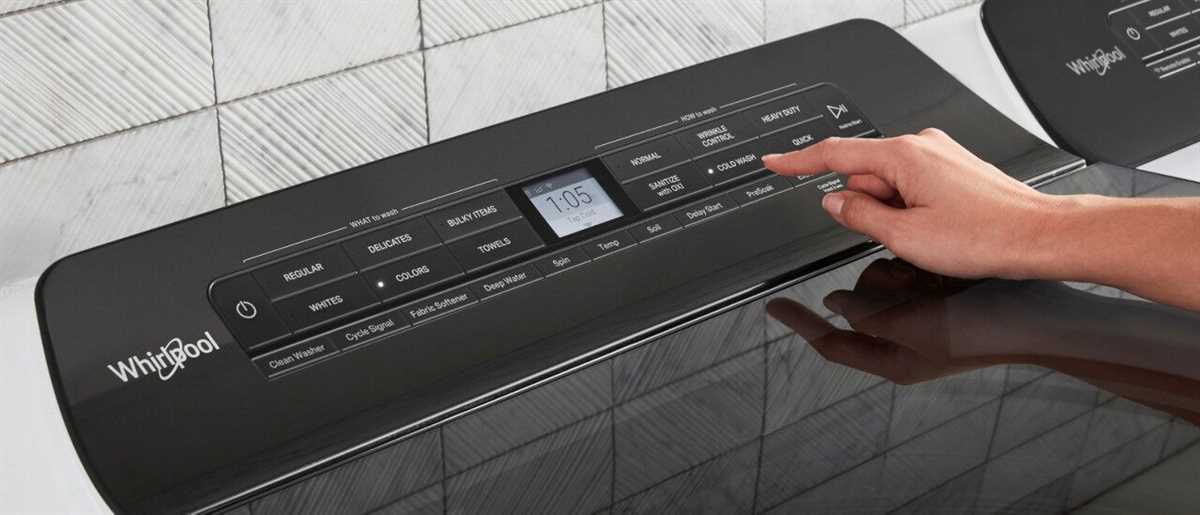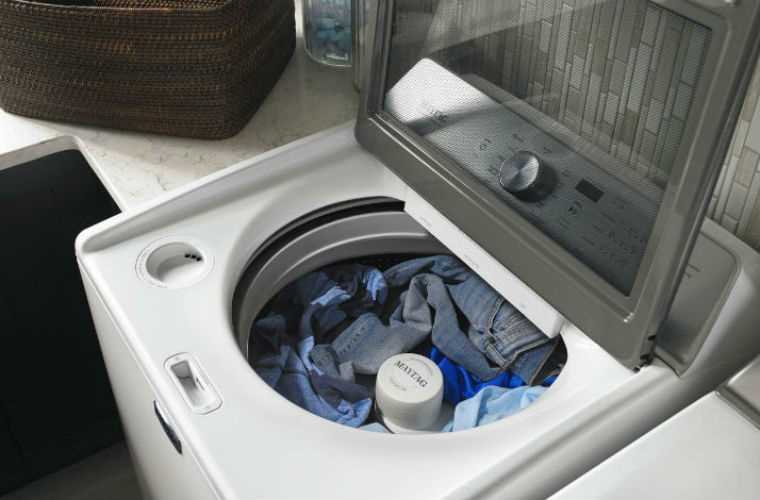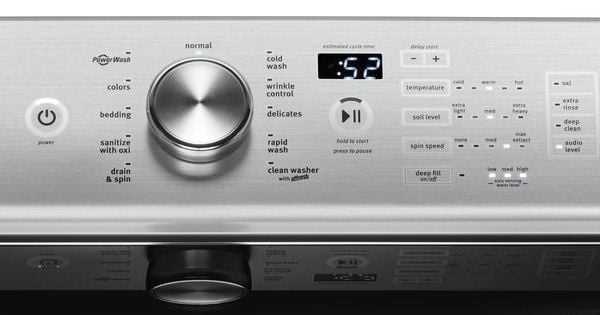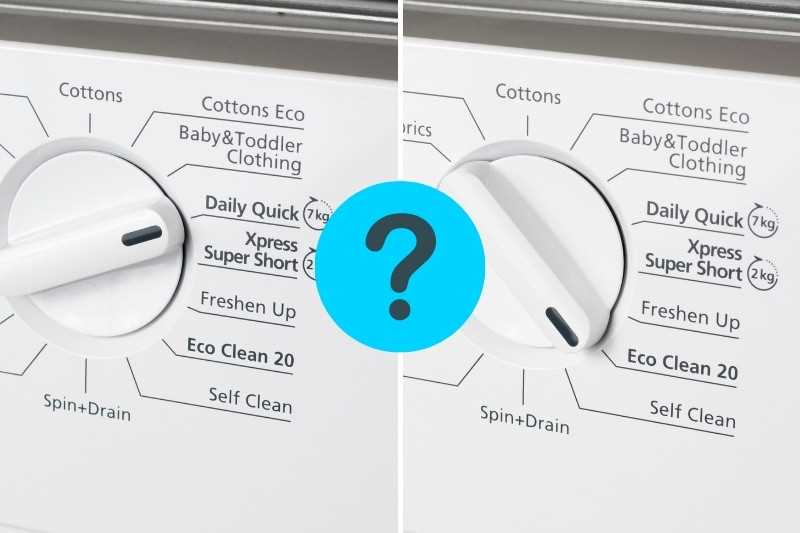




When it comes to doing laundry, we all want clean clothes as quickly and efficiently as possible. However, many modern washing machines seem to take an eternity to complete a cycle. It’s not uncommon to find machines that advertise cycle times of two, three, or even four hours. So, is it normal for a washing machine to take three hours to wash?
The answer is, it depends. There are a few factors that can contribute to a longer washing machine cycle time. One of the main factors is the type of wash cycle you select. For example, a delicate cycle or a heavy-duty cycle will usually take longer than a normal cycle. Additionally, if you are washing a large load of laundry, it will take more time for the machine to wash and rinse all the clothes.
Another factor that can influence washing machine cycle times is the efficiency of the machine itself. Older machines tend to have longer cycle times because they aren’t as advanced as newer models. Newer machines often have features like sensors that can detect the size and dirtiness of the load, which can help reduce the overall cycle time.
So, while it may be frustrating to wait three hours for your laundry to be done, it can be normal depending on the factors mentioned above. If you are concerned about the length of your washing machine cycle, it’s always a good idea to consult the manufacturer’s instructions or reach out to a professional for advice.
Why Does My Washing Machine Take 3 Hours to Wash?
Many people wonder why their washing machine takes so long to complete a cycle. While it can be frustrating to wait for three hours for a load of laundry to be done, there are several reasons why washing machines have longer cycle times.
1. Energy Efficiency
One of the main reasons why modern washing machines take longer to wash clothes is energy efficiency. Manufacturers have designed washing machines to use less water and electricity, which means they need more time to complete a cycle. By using less water and running the machine at lower temperatures, energy consumption is reduced.
2. Multiple Wash and Rinse Cycles
Another factor that contributes to longer washing times is the inclusion of multiple wash and rinse cycles. Modern washing machines often have preset cycles that include various stages, such as pre-soak, wash, rinse, and spin. These cycles ensure that your clothes are thoroughly cleaned and rinsed, but they require more time to complete.
3. Advanced Features
Many washing machines now come equipped with advanced features that contribute to longer cycle times. For example, some models have sensors that detect the weight and soil level of the load, adjusting the cycle accordingly. This additional processing and optimization can extend the overall wash time.
4. Load Size and Type
The size and type of load you are washing can also impact the duration of the cycle. Larger loads or heavily soiled items may require more time to clean properly. Additionally, delicate fabrics or items with specific care instructions may need to be washed on gentler cycles, which tend to be longer.
5. Water Pressure and Water Hardness
The water pressure in your home and the hardness of the water can also affect the time it takes for your washing machine to complete a cycle. Lower water pressure can slow down the filling and draining processes, while harder water may require extra rinses to remove soap residue.
Conclusion
While a three-hour washing machine cycle may seem long, it is often necessary to ensure efficient cleaning and energy savings. Understanding the factors that contribute to longer cycle times can help you optimize your laundry routine and make the most of your washing machine’s features.
Understanding Washing Machine Cycles
Washing machines have become an essential appliance in our homes, aiding in the task of keeping our clothes clean. However, it can be confusing for some to understand why a washing machine takes a seemingly long time to complete a cycle. In this article, we will delve into the different cycles of a washing machine and explain why they may take longer than expected.
1. Normal Wash Cycle
The normal wash cycle is the most commonly used cycle in washing machines. It typically takes around 30-40 minutes to complete, depending on the model and the load size. This cycle uses a higher water temperature and more vigorous agitation to remove dirt and stains from your clothes.
2. Delicate Cycle
The delicate cycle is designed for fabrics that require gentle care, such as silk or lace. This cycle uses slower agitation and lower water temperature to prevent damage to delicate garments. The delicate cycle may take longer, around 45 minutes to an hour, as it employs a more gentle approach to cleaning.
3. Heavy-Duty Cycle
The heavy-duty cycle is specifically designed for heavily soiled clothes or items that need a deeper clean, such as bed sheets or towels. This cycle uses longer washing and rinsing times, along with higher water levels, to thoroughly clean these items. The heavy-duty cycle can take up to 1.5 to 2 hours, depending on the load size and the level of dirtiness.
4. Quick Wash Cycle

The quick wash cycle is ideal for lightly soiled clothes that need a fast turnaround time. This cycle is generally shorter than other cycles, lasting around 15-20 minutes. However, it compromises on factors such as water temperature and agitation intensity to achieve a shorter cycle time.
5. Specialty Cycles

Some washing machines come with specialty cycles, such as a sanitize cycle for killing bacteria or an eco-friendly cycle for energy efficiency. These cycles may take longer than the standard cycles, as they focus on specific cleaning or energy-saving aspects.
Why do washing machine cycles take longer?
There are several factors that can contribute to the longer duration of washing machine cycles:
- Load size: A larger load will require more time for proper cleaning and rinsing.
- Dirtiness of clothes: More heavily soiled clothes will need extended agitation and rinsing.
- Water temperature: Higher water temperatures take longer to reach and maintain, especially in energy-efficient machines.
It is important to note that newer washing machines often have built-in sensors and technology that adjust the cycle time based on the load size and dirtiness of the clothes. This ensures optimal cleaning while minimizing unnecessary time delays.
Conclusion
Understanding the different washing machine cycles can help you better manage your laundry and set appropriate expectations regarding cycle duration. Remember that the length of a washing machine cycle can vary depending on the type of cycle, load size, and dirtiness of the clothes. If you have concerns about the duration of your washing machine cycle, consult the manufacturer’s instructions or seek professional advice.
Factors Affecting Washing Machine Cycle Time
When it comes to washing machines, the cycle time can vary depending on several factors. Understanding these factors can help you determine if the cycle time of your washing machine is normal or if there is an issue that needs to be addressed.
Type of Wash Cycle
One of the main factors that affect washing machine cycle time is the type of wash cycle selected. Different wash cycles can have varying durations, depending on the level of agitation, water temperature, and the number of rinse cycles involved. For example, a delicate cycle may have a shorter duration compared to a heavy-duty cycle that requires more agitation and longer rinse cycles.
Load Size
The size of the washing machine load can also affect the cycle time. Generally, larger loads will take longer to wash as the machine needs more time to distribute water, detergent, and ensure thorough cleaning of all the garments. On the other hand, smaller loads may require less time as they require less water and agitation.
Water Temperature
The water temperature selected for the wash cycle can also impact the cycle time. Washing machines typically have different temperature options such as hot, warm, and cold. Hot water cycles tend to be longer as they require more time for the machine to heat the water to the desired temperature. Cold water cycles, on the other hand, may be shorter as the machine doesn’t need to spend time heating the water.
Soil Level
The level of soil on the garments being washed can also affect the cycle time. If the clothes are heavily soiled, the washing machine may need to run additional agitation or rinse cycles to ensure thorough cleaning, which can extend the overall cycle time. On the other hand, lightly soiled clothes may require a shorter cycle time as they need less cleaning and rinsing.
Efficiency Features
Some washing machines come with energy-saving or efficiency features that can impact cycle time. These features, such as eco modes or quick wash options, are designed to reduce energy and water consumption. However, they may also result in shorter wash cycles. If you have activated such features, it is normal for your washing machine to have a shorter cycle time.
Machine Brand and Model
Lastly, the brand and model of the washing machine can also play a role in the cycle time. Different manufacturers and models may have different default cycle times based on their internal programming and design. It’s always a good idea to consult the user manual or the manufacturer’s website for information on the expected cycle time for your specific machine.
In conclusion, several factors can affect the cycle time of a washing machine, including the type of wash cycle, load size, water temperature, soil level, efficiency features, and the machine’s brand and model. By considering these factors, you can better understand if your washing machine’s cycle time is normal or if there may be an issue that needs attention.
Efficiency vs. Time

The Importance of Efficiency

Efficiency is a crucial factor to consider when it comes to choosing a washing machine. A washing machine’s efficiency is measured by its ability to clean clothes thoroughly while using the least amount of time and resources.
Efficiency is not only important for saving time and energy, but it also contributes to environmental sustainability. A more efficient washing machine uses less water and requires less power, reducing its overall impact on the environment.
Factors Affecting Washing Machine Efficiency
Several factors can affect the efficiency of a washing machine, including:
- Washer Type: Different types of washing machines, such as top-loaders and front-loaders, have different levels of efficiency. Front-loaders tend to be more efficient as they use less water and energy compared to top-loaders.
- Machine Capacity: The size of a washing machine drum affects its efficiency. A larger drum allows for more clothes to be washed in one load, reducing the number of cycles needed and saving time and energy.
- Program Selection: Choosing the right washing program for different types of fabrics and levels of dirtiness can significantly improve efficiency. Using the appropriate temperature and cycle length ensures optimal cleaning without wasting resources.
- Water Consumption: The amount of water used during the washing process directly impacts efficiency. Modern washing machines with water-saving features or adjustable water levels can help reduce water consumption.
- Energy Consumption: The energy efficiency of a washing machine is an important consideration. Look for machines with high energy star ratings, as they consume less electricity and save money on utility bills.
Time Considerations
While efficiency is important, the time taken by a washing machine to complete a cycle is also a significant factor for many users. Washing machines with longer cycle times are often designed to provide a more gentle wash, which is ideal for delicate fabrics.
However, if your washing machine consistently takes three or more hours to wash a load of laundry, it may indicate an underlying issue, such as a malfunctioning sensor or a clogged filter. It is recommended to consult the manufacturer or a professional technician to diagnose and resolve the problem.
Conclusion
In conclusion, efficiency should be a primary consideration when choosing a washing machine. By selecting a machine that balances efficiency and time considerations, you can enjoy clean laundry while minimizing your environmental impact and saving on resources.
Troubleshooting Long Washing Machine Cycles

If your washing machine is taking significantly longer than usual to complete a cycle, there may be several factors contributing to the issue. Here are some troubleshooting tips to help you figure out what could be causing the extended cycle times:
1. Excessive Laundry Load
One of the most common reasons for long washing machine cycles is overloading the machine. If you fill the washing machine beyond its recommended capacity, it will struggle to clean the clothes efficiently. As a result, the cycle time will be prolonged. Make sure to follow the manufacturer’s guidelines regarding load size to optimize the cleaning performance and minimize cycle duration.
2. Unbalanced Load
An unbalanced load inside the washing machine can also lead to longer cycle times. When the load is improperly distributed, the machine will automatically try to redistribute the clothes to achieve balance. This process may need to be repeated multiple times, resulting in extended cycle duration. To prevent this, ensure that the clothes are evenly distributed inside the drum before starting the wash cycle.
3. Clogged or Faulty Drain Pump

A clogged or faulty drain pump can cause the washing machine to take longer to drain the water. If the water is not properly drained, the machine may need to repeat the rinse and drain cycles, significantly increasing the overall cycle time. Check for any blockages in the drain pump and clean it if necessary. If the pump is damaged or malfunctioning, it may need to be replaced.
4. Water Supply Issues

If the washing machine is not receiving sufficient water supply, it may take longer to fill up the drum and complete the cycle. Check the water inlet hose for any kinks or blockages that may be restricting the water flow. Make sure that the water supply valves are fully open. If there are any issues with the water supply, address them to ensure proper functioning of the washing machine.
5. Malfunctioning Timer or Control Board
In some cases, a malfunctioning timer or control board can cause the washing machine to get stuck in a prolonged cycle. If the timer or control board is not properly regulating the cycle duration, it may need to be repaired or replaced. Consult a professional technician to diagnose and resolve any issues related to the washing machine’s electronic components.
Following these troubleshooting tips should help you identify the cause of the long washing machine cycles and take appropriate measures to resolve the issue. Remember to always refer to the manufacturer’s instructions and seek professional assistance if needed.
When to Seek Professional Help

-
Noisy Operation
If your washing machine is making excessive noise during operation, it may indicate a problem. While some noise is normal, especially during certain cycles, loud and unusual sounds could be a sign of a malfunctioning component or loose part. In such cases, it is advisable to consult a professional for inspection and repair.
-
Leaking Water
Water leakage from a washing machine is a serious issue that should not be ignored. If you notice water pooling around the machine or leaking from underneath, it could be due to a problem with the hoses, valves, or the drum. Seek professional help as soon as possible to prevent further damage and flooding.
-
Frequent Breakdowns
If your washing machine constantly breaks down or stops functioning properly, it may be a sign of an underlying issue. While occasional minor repairs are normal, frequent breakdowns can be a sign of a more significant problem that requires professional attention. A trained technician will be able to identify the cause of the recurring issues and provide an appropriate solution.
-
Persistent Odors
Unpleasant odors coming from your washing machine can be a sign of mold or mildew formation. This can occur if the machine is not properly cleaned or if there is a blockage in the drainage system. If you have tried cleaning the machine and the odor persists, it is advisable to call a professional to inspect and sanitize the machine thoroughly.
Hot PickCalgon 4-in-1 Water Softener TabletsDeep cleaning for your washing machineThese tablets effectively clean and soften water, removing limescale and residue for optimal washing machine performance, extending the life of your appliance. -
Electrical Problems
If your washing machine is experiencing electrical problems, such as tripping circuits or inconsistent power supply, it is important to seek professional help immediately. Electrical issues can be dangerous and should be addressed by a qualified technician to ensure your safety and prevent any potential damage to the machine.
Overall, if you have any concerns about the performance, safety, or functionality of your washing machine, it is best to seek professional help. Certified technicians have the expertise and knowledge to diagnose and fix problems effectively, ensuring that your washing machine operates efficiently and lasts longer.
FAQ
Why does my washing machine take so long to wash?
There could be several reasons why your washing machine takes a long time to wash. One possible reason is that you are using a cycle that is designed for heavily soiled clothes, which requires more time to properly clean them. Another reason could be that your washing machine is older and less efficient, causing it to take longer to complete a cycle. Additionally, if you are using a high-efficiency washing machine, it may take longer to wash to ensure that the clothes are thoroughly cleaned.
Is it normal for a washing machine to take 3 hours to wash?
No, it is not normal for a washing machine to take 3 hours to wash. Most washing machines have different cycle options, including shorter cycles that can complete a wash in about 30-60 minutes. If your washing machine consistently takes 3 hours or more to complete a cycle, there may be an issue with the machine that needs to be addressed. It is recommended to consult the user manual or contact the manufacturer for troubleshooting tips or to schedule a repair if necessary.
Can I speed up the washing machine’s cycle?
Yes, it is possible to speed up the washing machine’s cycle. Most modern washing machines have various cycle options, including quick or express cycles designed to complete a wash in a shorter amount of time. These cycles are typically suitable for lightly soiled clothes or small loads. However, it is important to note that using a quick cycle may not provide the same level of cleaning as a regular or heavy-duty cycle. Therefore, it is recommended to use quick cycles only when necessary and follow the manufacturer’s guidelines.
Should I be concerned if my washing machine takes longer than usual to wash?
If your washing machine takes longer than usual to wash, it may indicate a potential problem that needs to be addressed. In some cases, the issue could be related to the machine itself, such as a clogged filter or a malfunctioning component. It is also possible that the problem is related to the water supply or the laundry detergent being used. If you notice a significant increase in the duration of the wash, it is recommended to check for any visible issues, refer to the user manual for troubleshooting tips, or contact a professional for further assistance.












